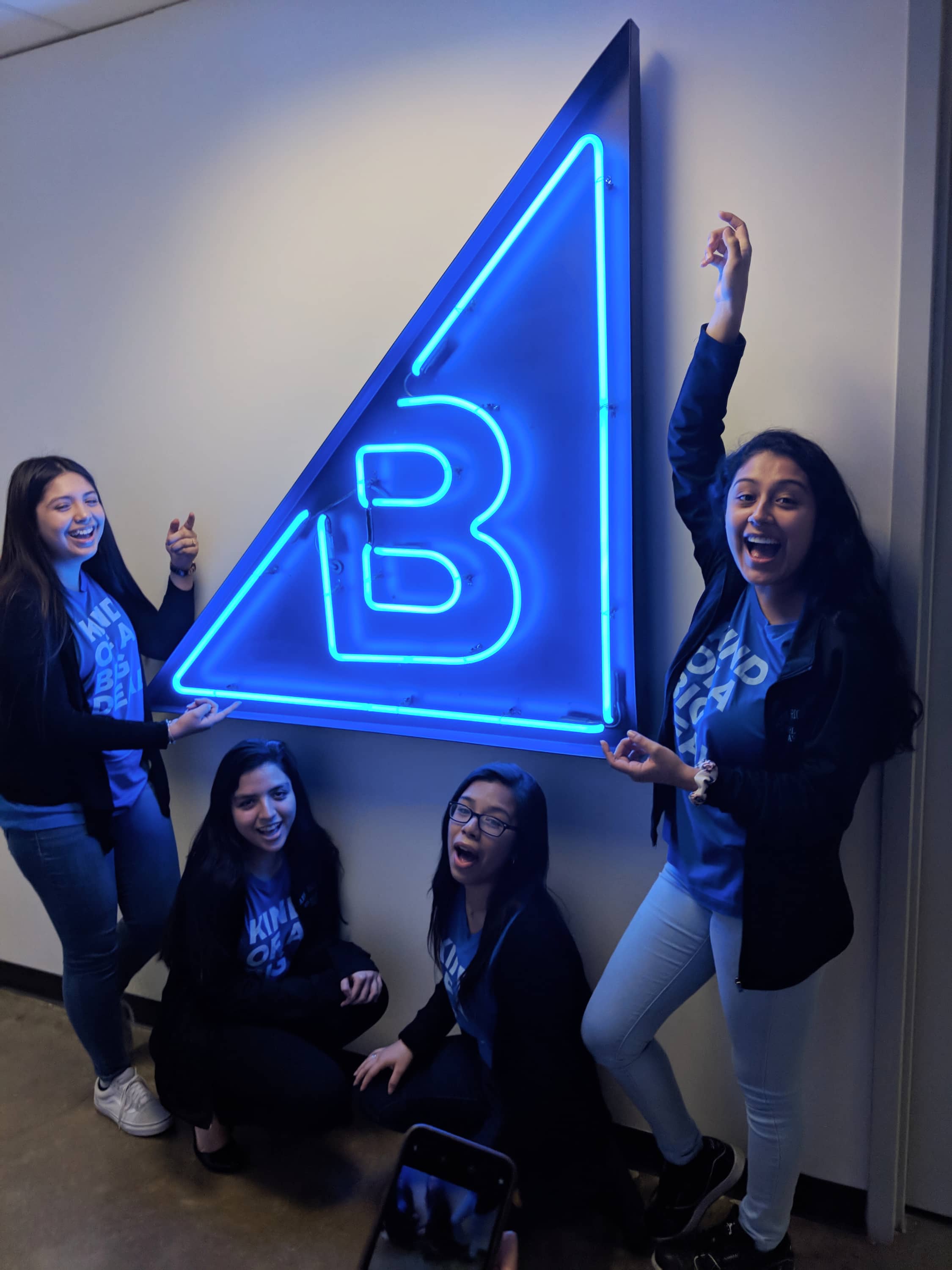Opening the Door to Future Women Leaders
“Whether or not my daughters pursue a career in tech is immaterial, but that needs to be their own choice, not because they didn't have access or exposure to the opportunities."
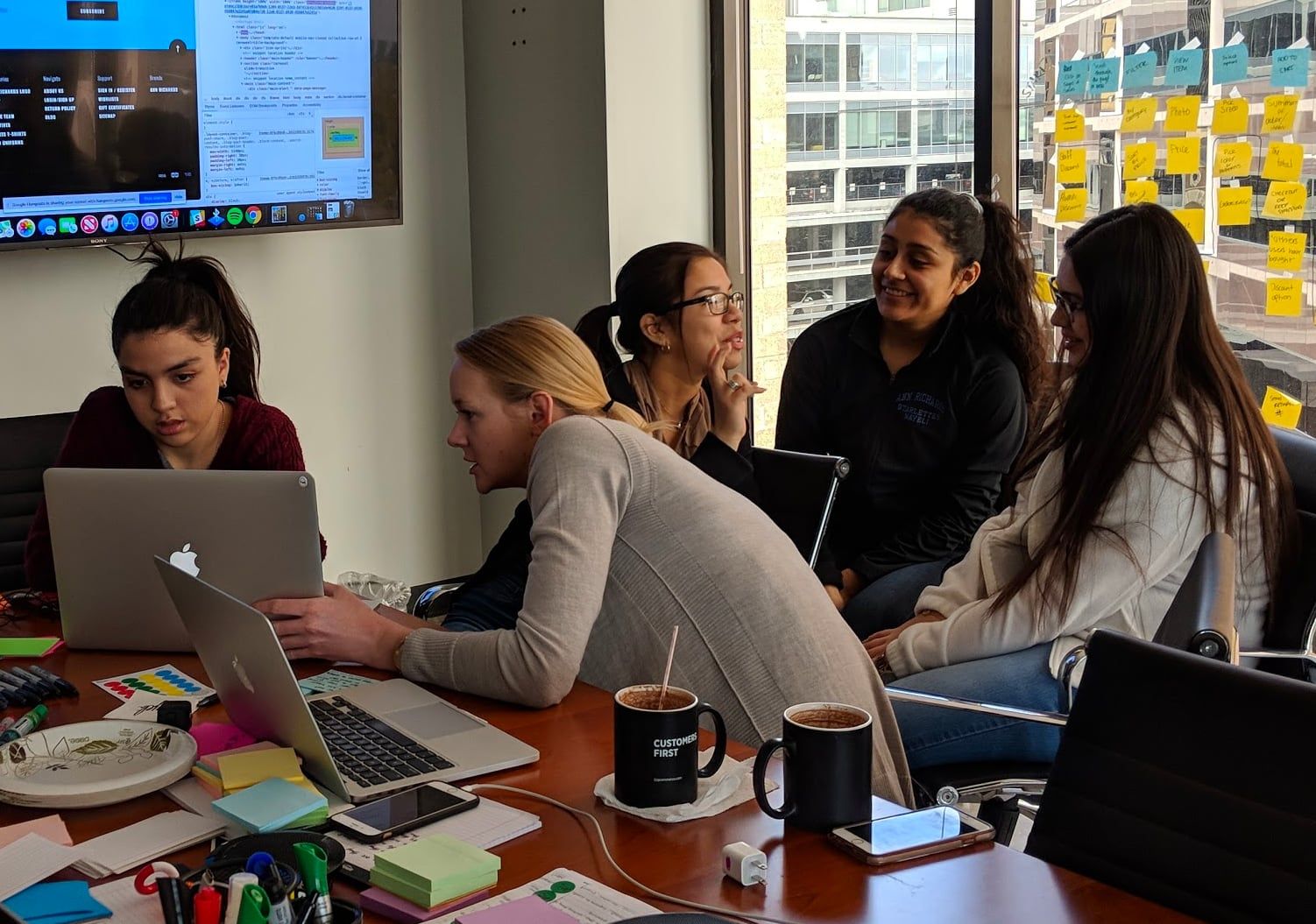
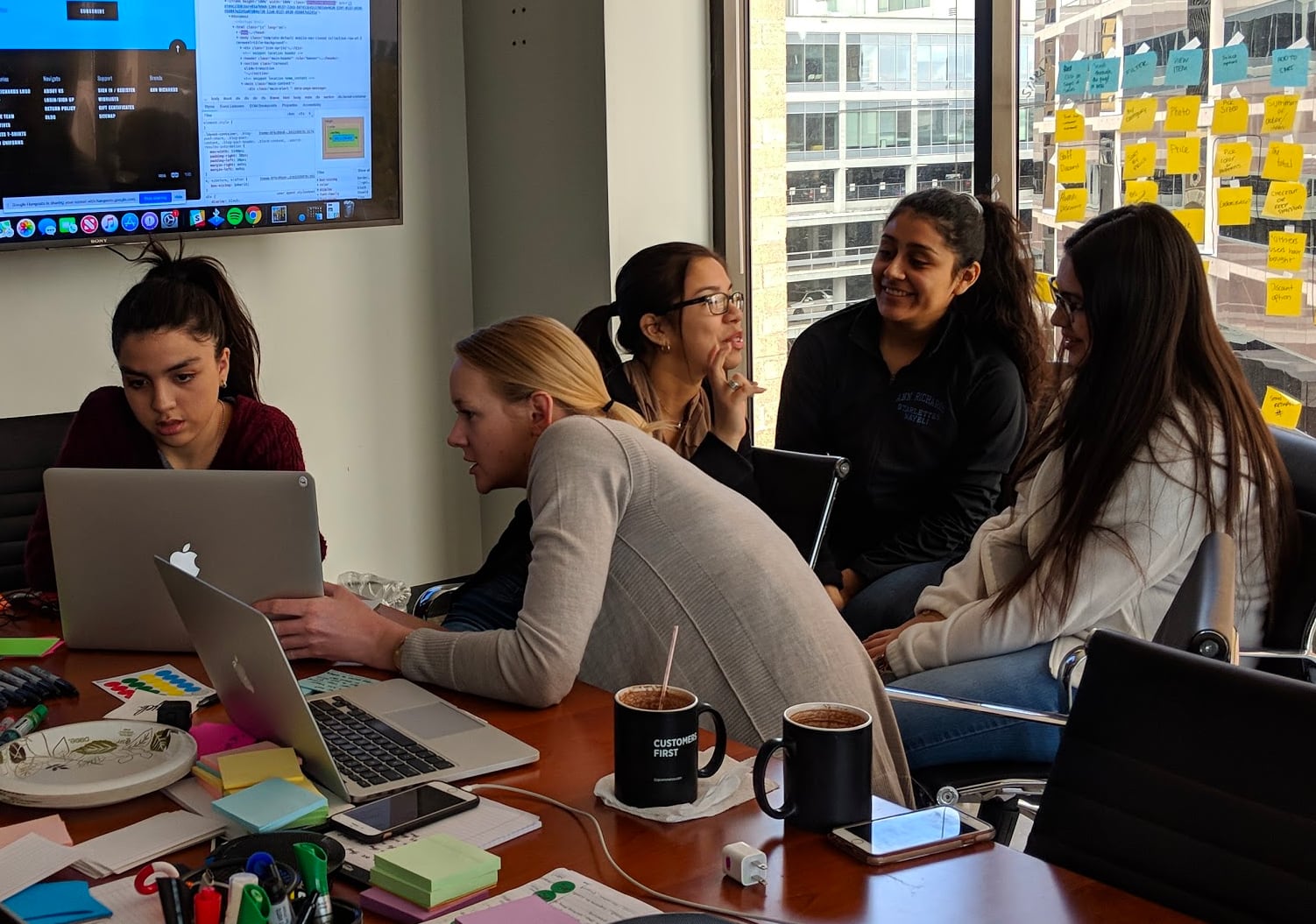
On a Friday this February, four juniors from the Ann Richards School for Young Women Leaders stood in front of the entire BigCommerce downtown Austin office. Behind them a projector screen displayed the fruits of their labor for that week: a presentation of what they accomplished each day, what they learned, roadblocks they ran into, and finally a demo of a live store they conceived and built themselves.
The mood of the room fluctuated between excitement and immense pride as Nayel Bautista, Karen Mondragon, Marti Cuevas, and Andrea Majalca each answered a plethora of questions from BigCommerce employees. The most telling moment came when they were asked if they would consider pursuing a career in tech. Marti smiled, “Before this internship I’ve never considered myself a techie person. I’m the kind of person that breaks a computer.”
But after four days being immersed in the world of tech, they learned it’s not about already knowing everything. It’s about the effort to learn and understand the problem so you can get to the solution. All they needed was the opportunity to crack open the door. Each of the young women expressed similar sentiments to Marti, and one by one they answered yes.
Identifying the opportunity
The Ann Richards School (ARS) is an all-girls STEM school that “dedicates itself to prepare young women to attend and graduate from college, commit to a healthy and well-balanced lifestyle, lead with courage and compassion, and solve problems creatively and ethically in support of our global community.” Data shows 56% of the school’s student body are economically-disadvantaged, and 65% of graduates will be the first in their family to graduate from college.
One of our senior engineers, Dan Murrell, introduced BigCommerce to the Ann Richards School. His interest in Diversity and Inclusion stems from his own college experience. As a CS major in 1989, he recalled his classes being full of both men and women, staff included. When he returned years later to complete his degree, his classes were much less diverse – almost all the women were absent.
“I don't think you can have a healthy tech industry in that reality," he said. "Until I found the Ann Richards School and came to understand their mission – creating young women leaders – I didn't know how you could fix it.”
In its annual report, Silicon Valley Bank states out of tech and healthcare companies surveyed in the United States, China, Canada, and the UK, “56 percent of startups have at least one woman in an executive position, and only 40 percent have at least one woman on the board of directors.” (Silicon Valley Bank Women in Technology Leadership report, 2019)
That leaves half of all startups without a single woman on their leadership team. Companies that are willing to host interns, take them under their wing, and teach them the ropes may be the key to solving this problem.
Diversity drives innovation
“Whether or not my daughters pursue a career in tech is immaterial, but that needs to be their own choice, not because they didn't have access or exposure to the opportunities."
- Jimmy Duvall, BigCommerce Chief Product Officer
BigCommerce recognized how detrimental this lack of diversity is for both the success of a rapidly growing company and its culture. In response to the mountain of evidence proving diversity drives innovation, they backed a global employee resource group for women, non-binary people, and allies, aptly named Tribe. The downtown Tribe chapter is led by Kelsey Isaacson, Senior Software Engineer, Stevie Huval, Product Manager, and Theresa Garritano, Product Designer. When these women leaders learned about ARS, how their values lined up with Tribe, and the internship opportunity, their wheels started turning. So they pitched the internship to Chief Product Officer Jimmy Duvall for executive sponsorship. Though BigCommerce had never done something like this before, he didn’t need convincing.
“As the father of two teen girls, the program really struck a chord with me on a personal level,” Duvall said. “Whether or not my daughters pursue a career in tech is immaterial, but that needs to be their own choice, not because they didn't have access or exposure to the opportunities. I love that the Ann Richards School is taking a highly practical, hands-on approach to solving this issue.”
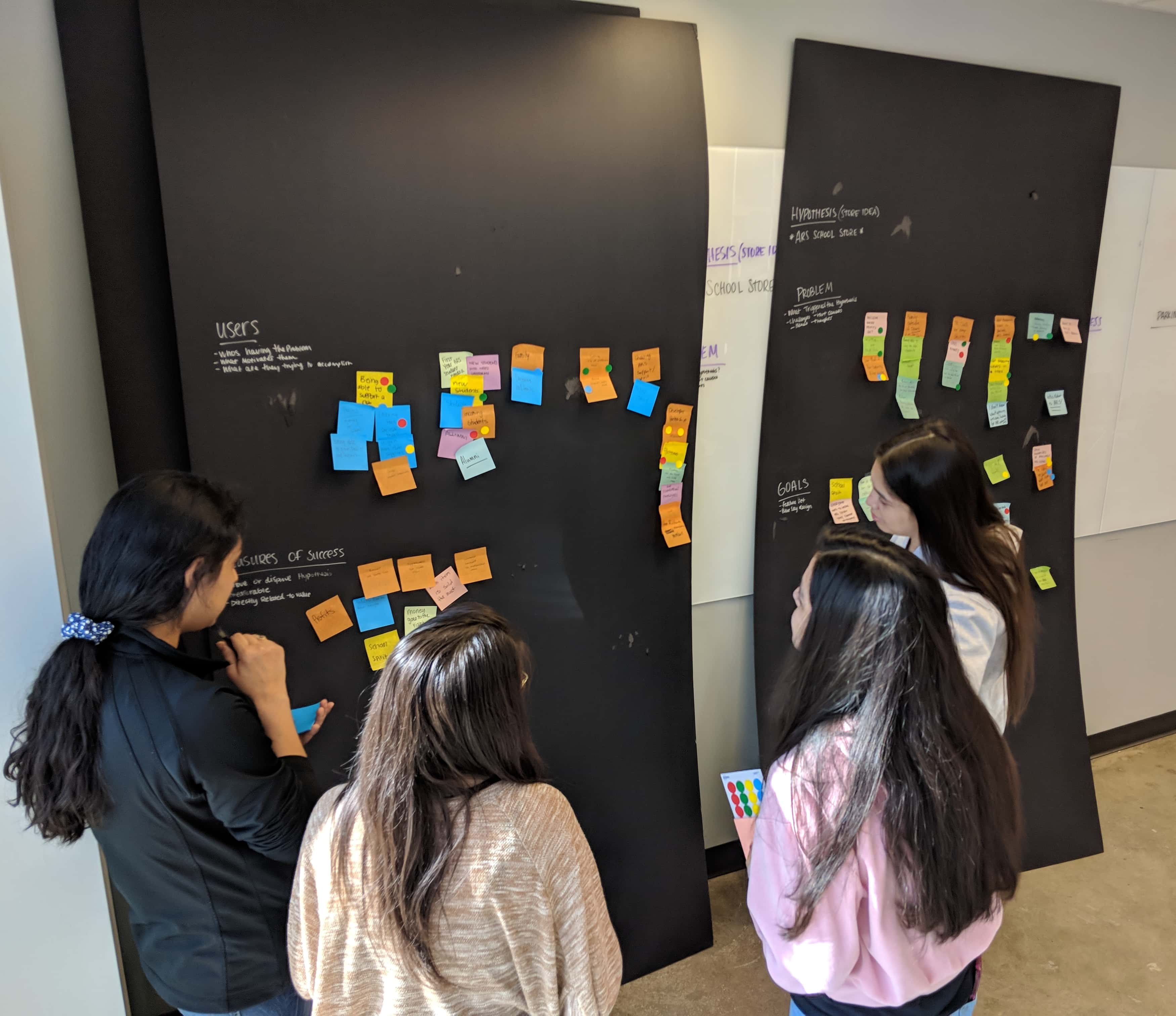
Once the Tribe leaders had executive buy-in, they agreed to host the internship. They intentionally chose a project that was relatable to high school juniors, would offer them takeaways they could apply across multiple areas of their lives (even if they didn’t end up in ecommerce), and could be completed in a week. After going through multiple ideas, they settled on the perfect project: walking the young women through a complete, yet condensed, product lifecycle.
The interns would build a live, online store and be given all the tools they needed to be successful, mimicking the type of work they could expect from a job in tech. They would walk away with a working store to iterate on and use after the internship week was over. By going through the planning process, they would be able to understand how to come up with, organize, and execute on ideas.
Getting to work
The week started with a brainstorming activity to decide the theme of the store. The interns cycled through ideas like a makeup store, but after grouping together their ideas, they noticed a common theme: school swag. They liked the idea of taking a real world problem, sales and distribution of ARS shirts, stickers, calendars and more, and making that process better.
Stevie noted they naturally gravitated towards who and what they had the most empathy for – they focused their target audience on students rather than parents or faculty, and had a keen eye for organizing the products in a way that would make sense. After agreeing on what to build, they had to figure out how. The team prioritized what they wanted to do, picked up user stories, independently figured out how to use BigCommerce’s tooling, and were increasingly enthusiastic about getting into the code and making front-end changes.
Though none of the young women had previous experience working in code, they dove in head first. Stevie noticed they were exhibiting a hallmark trait of developers - they would try and fail and try again, fully embodying the attitude of not giving up.
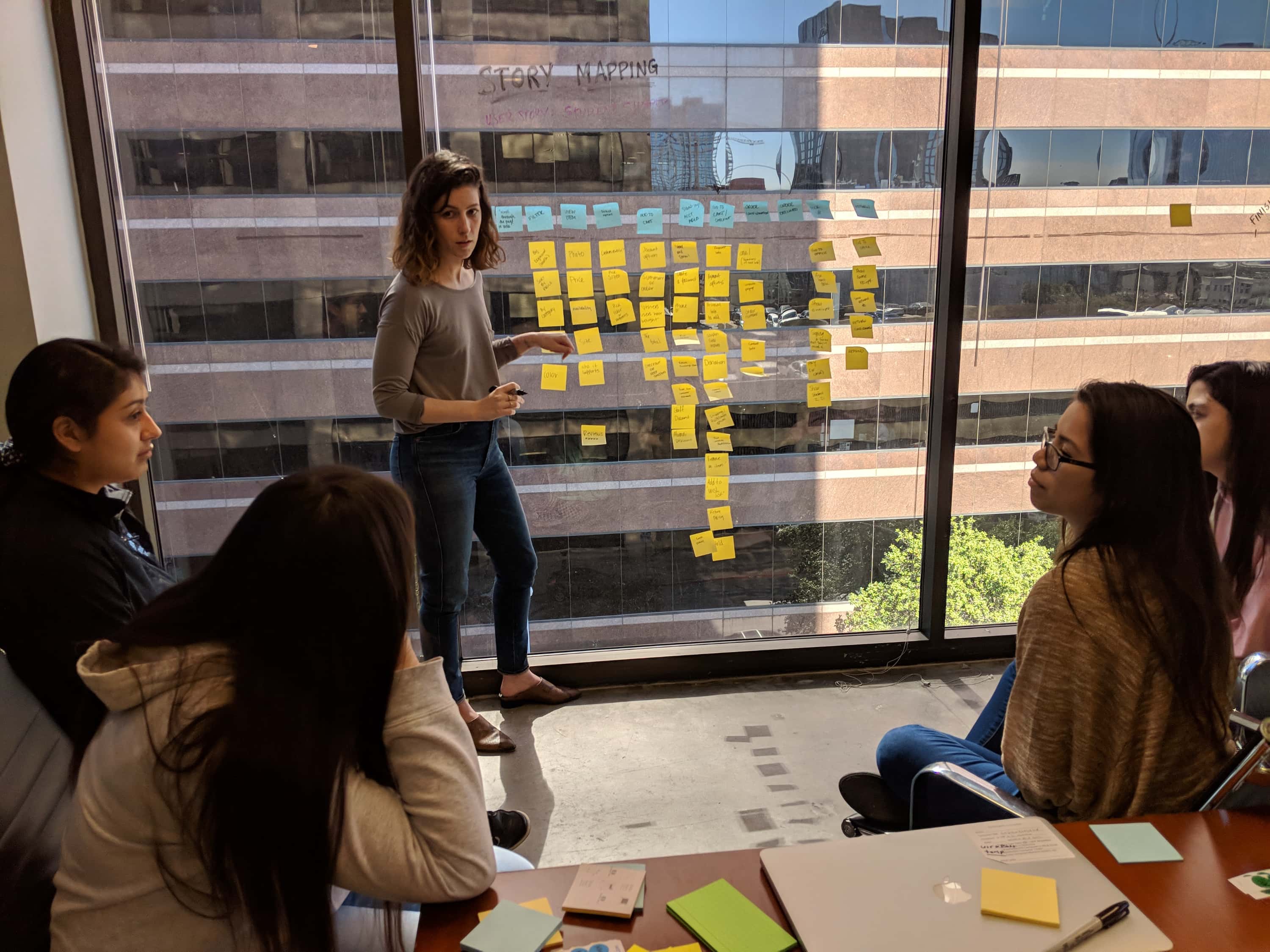
Theresa said when Andrea saw her CSS code working, “her eyes lit up.” Seasoned developers have to admit, it’s easy to lose the magic of daily tasks. The rate at which the students absorbed information and were able to apply it to their project surprised everyone who worked with the young women.
While the Tribe leaders set the objective and many BC employees volunteered to help answer questions, the interns made their own decisions.
Unexpected benefits
Mojo boost (noun): an increase in morale, excitement, and engagement with other team members at BigCommerce.
Tech companies aren’t used to high schoolers wandering through their offices, but their accomplishments serve to further demonstrate the value of diversity in the tech community. And judging by the high number of volunteers who contributed to making the week a success, the employees of BigCommerce would agree. Kelsey noted that she was surprised how many people were eager to be involved - nearly twenty BCers volunteered for anything from being available to answer questions to leading learning sessions. An unintended side effect of the internship was what BC calls a mojo boost – an increase in morale, excitement, and engagement with other team members. Aside from generating excitement throughout the office, the young leaders were also able to assist BC by giving us a fresh perspective on our product.
While there was no business agenda behind the decision to take on the internship, there was a blindspot that the interns surfaced – since they didn’t have a lot of technical experience themselves, they were able to honestly point out how BC could better communicate with their non-technical users. It’s deceptively easy to assume everyone using the tools we build will understand the value and background that went into certain decisions. One thing that stuck out was how difficult the experience of launching a store could be for non-technical users.
Merchants are somewhat forced into the developer experience, though that’s not the first prerequisite that comes to mind when a user wants to launch a store. When doing things like choosing the color scheme and layout and deciding on the look and feel of their store, Stevie realized “not everyone in our audience is a seasoned developer like we expect them to be.”
Thanks to these young women’s honesty and the rapport BC was able to build with them, we have new data for our product planning.
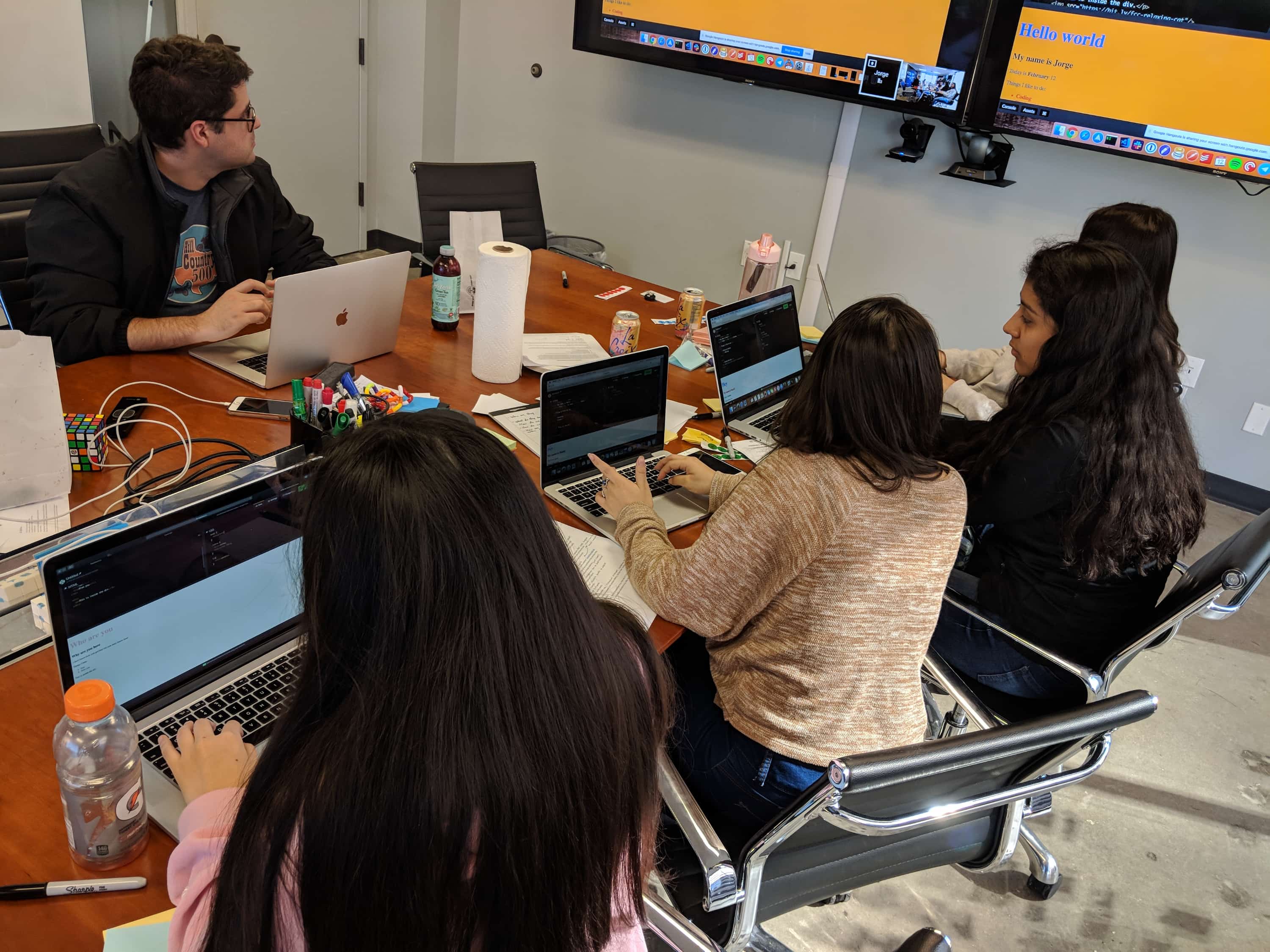
Tech employees usually work in a bubble. We talk to the same people about similar issues, and try to infer what people with different experiences want and need. But by spending just one week with the ARS interns, Stevie felt like she’d had a revelation. She noted at BigCommerce we make huge investments in the platform, some taking months to complete from start to finish. Long timelines can start to wear on morale. It’s easy to forget that there are things that can be completed in the context of a week or two, and that quick turnaround is invigorating.
“You’re starting with nothing and end up with something,” she said. “You’re better off than you were before, and [I realized] I can bring that enthusiasm back to the team. It’s fun to end the week with something shipped and live in production.”
Further, the young women served as a refresher on how to work with a team. When a decision needed to be made, they consulted among themselves and only asked for help or guidance when it was truly needed.
By having everyone in one room and available, blockers were all but eliminated. The interns iterated quickly in their short time with BC, and Stevie said that begs the question, “Am I asking for permission when I don’t need to?” She joked that although the interns hadn’t been exposed to the Agile method of iterating, they were sometimes more Agile than BigCommerce.
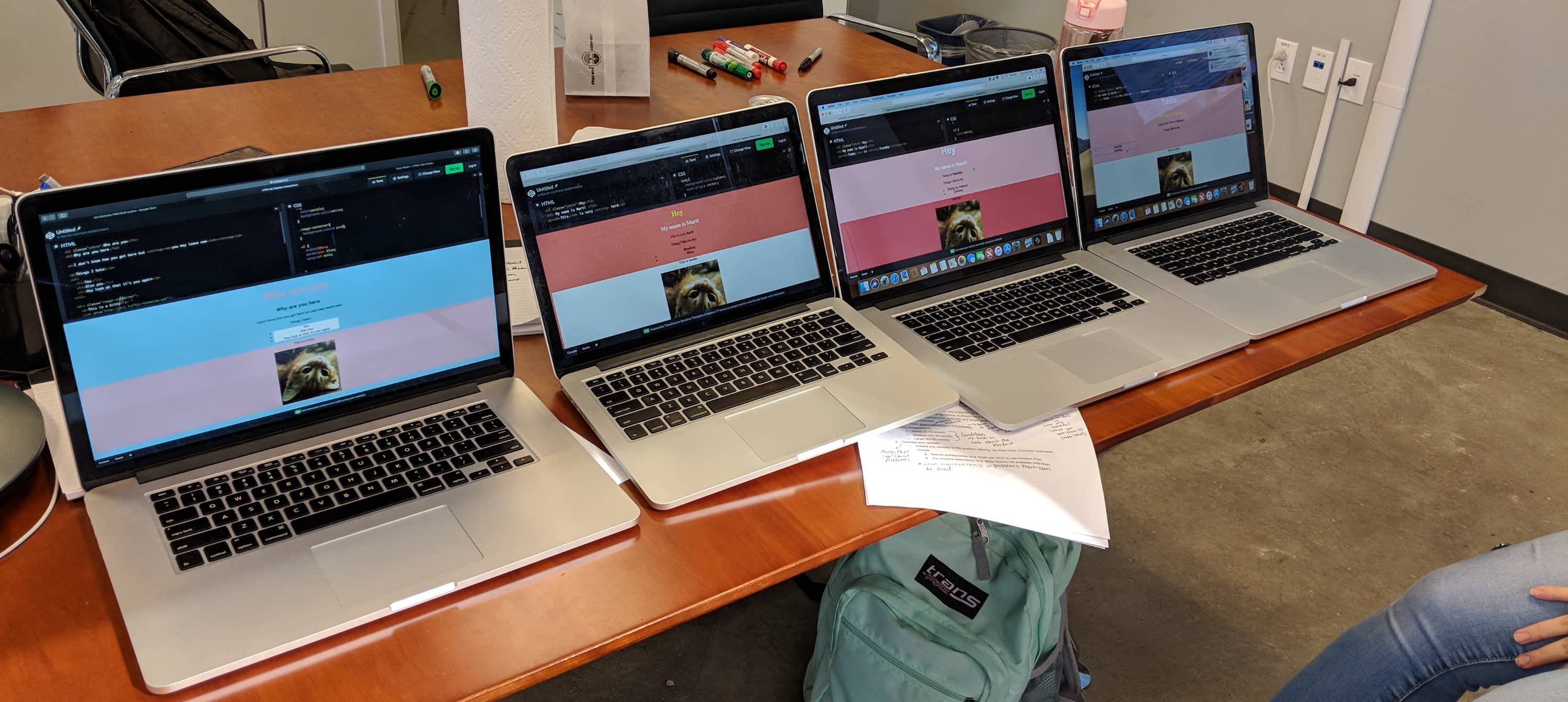
There were so many obvious gains at the product level, but at the company level, the opportunities are even more substantial. Kelsey pointed out this is a great way to show BigCommerce is a company that supports and actively seeks out opportunities to prove our dedication to diversity and inclusion.
“It’s a way to get our name out there and become an involved member in the community,” which Kelsey noted should be highly valued everywhere, but is especially so in Austin. “It was cool to see how many people got involved, and there were tears in people’s eyes after the presentation at the All Hands [meeting].”
“What we do is exciting, what we do does make a difference...”
Internships are not a new concept, and the benefits of BigCommerce’s participation are abundantly clear: the mojo boost, the relationship building, seeing what we work on every day through new eyes so we can build a better product. Jimmy said he is “acutely aware of the under-representation of women in tech and that much of this is attributed to not having a healthy pipeline of girls interested in tech at a young age.”
One solution is to hold an open door for young women who want to try on a tech role to see how they like it. Silicon Valley Bank’s report details that 59 percent of startups have some type of program in place designed to increase the number of women in leadership positions (2019). Kelsey says participating in the internship reminded her that “what we do is exciting, what we do does make a difference.”
If all it takes for four young women to get excited about a future in tech is four and a half days in a room and a handful of volunteers to assist them, why shouldn’t we be fostering their interest? It took a small leap of faith, but based on the success of the internship, BigCommerce will continue to champion initiatives to inspire future techies.
